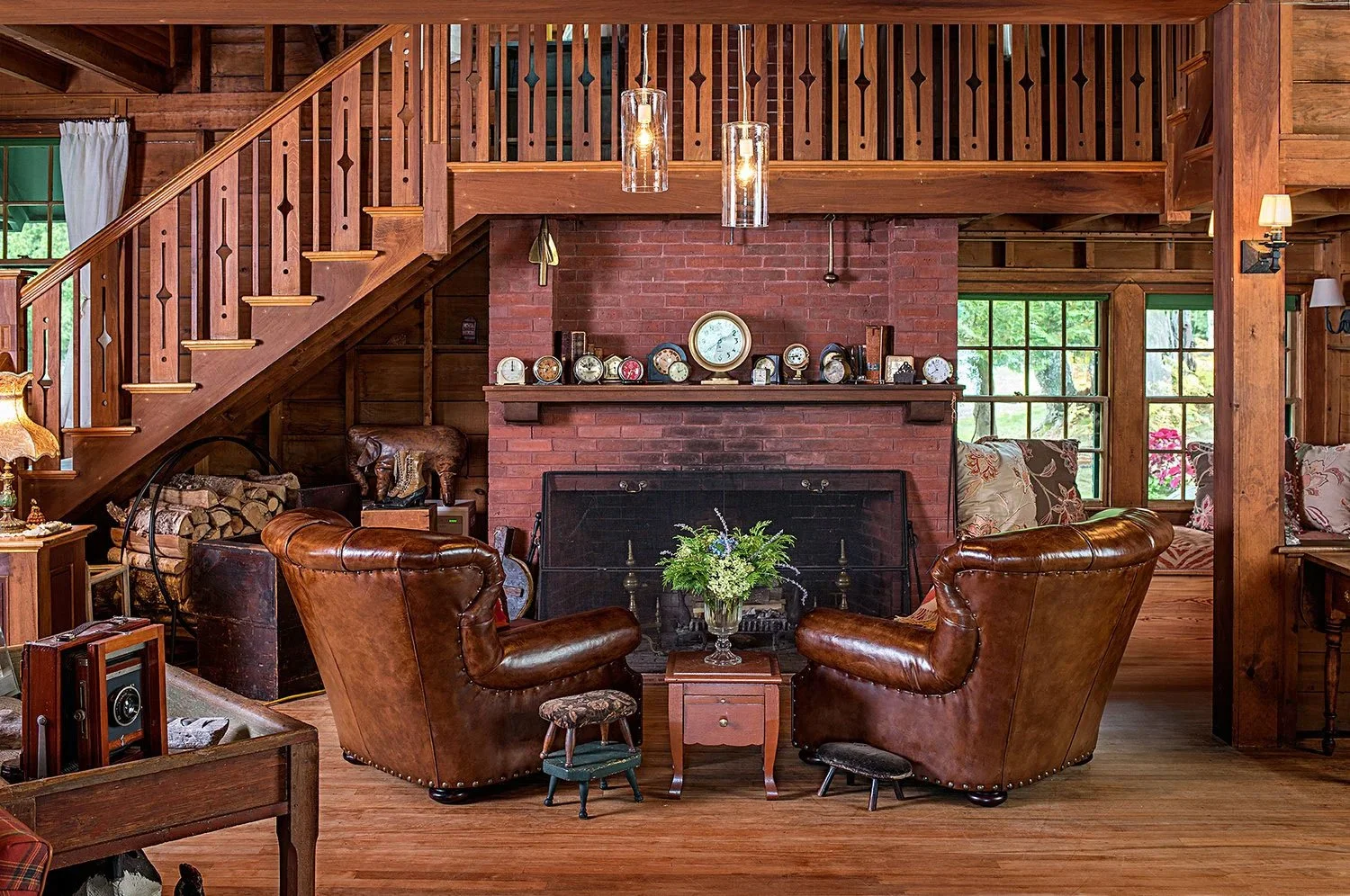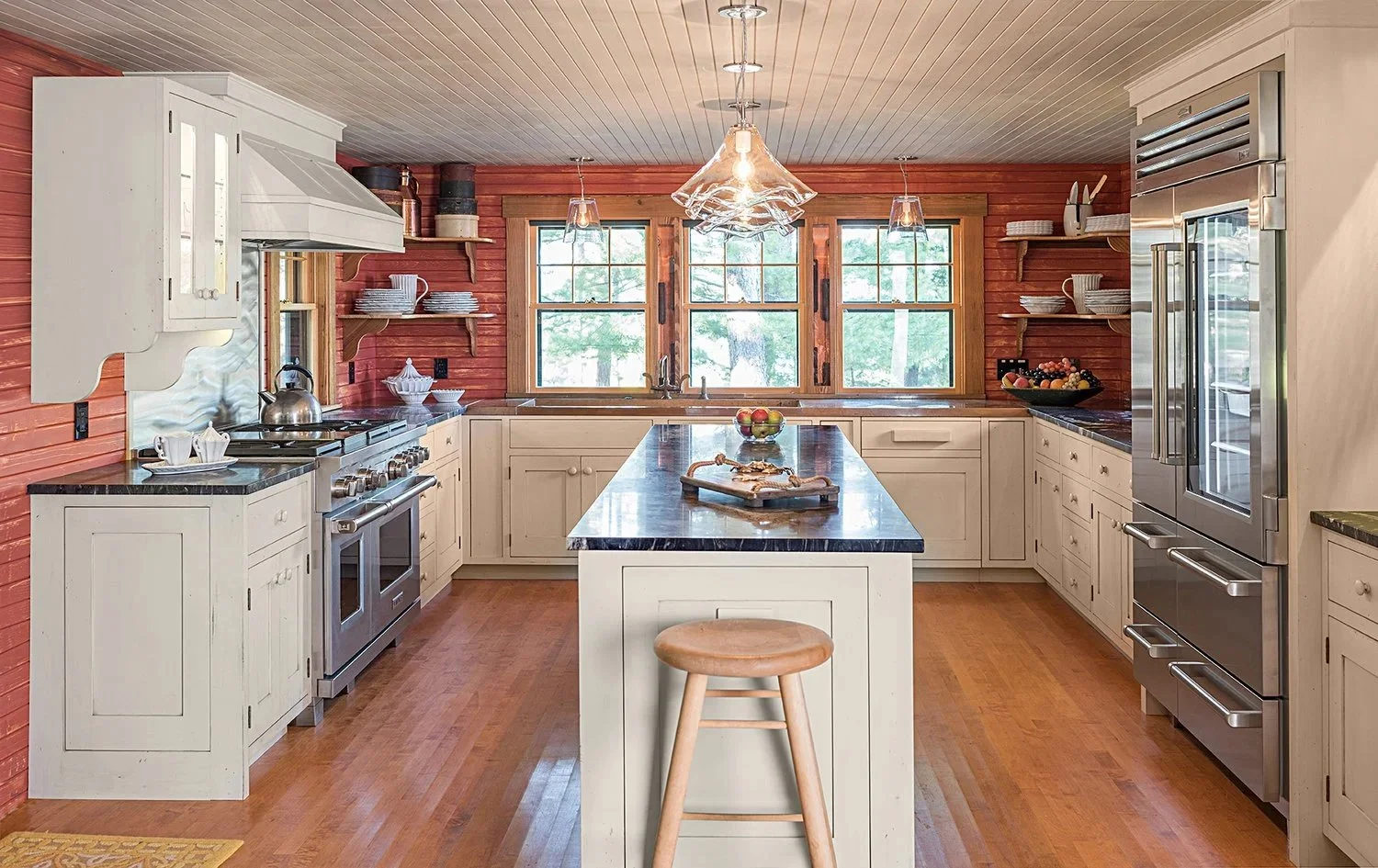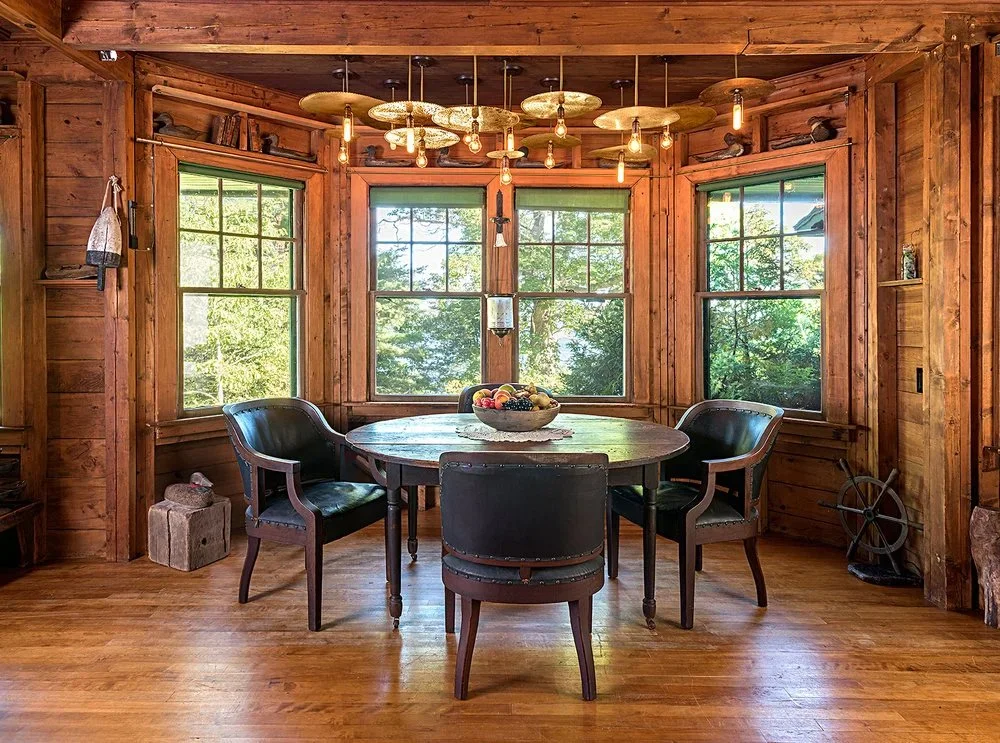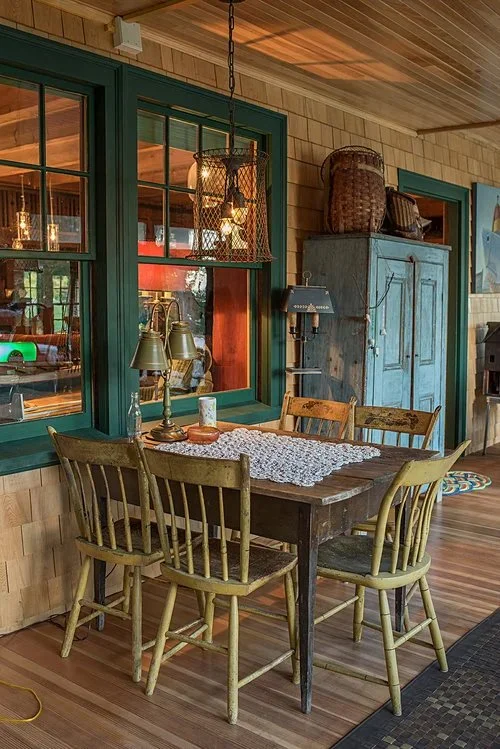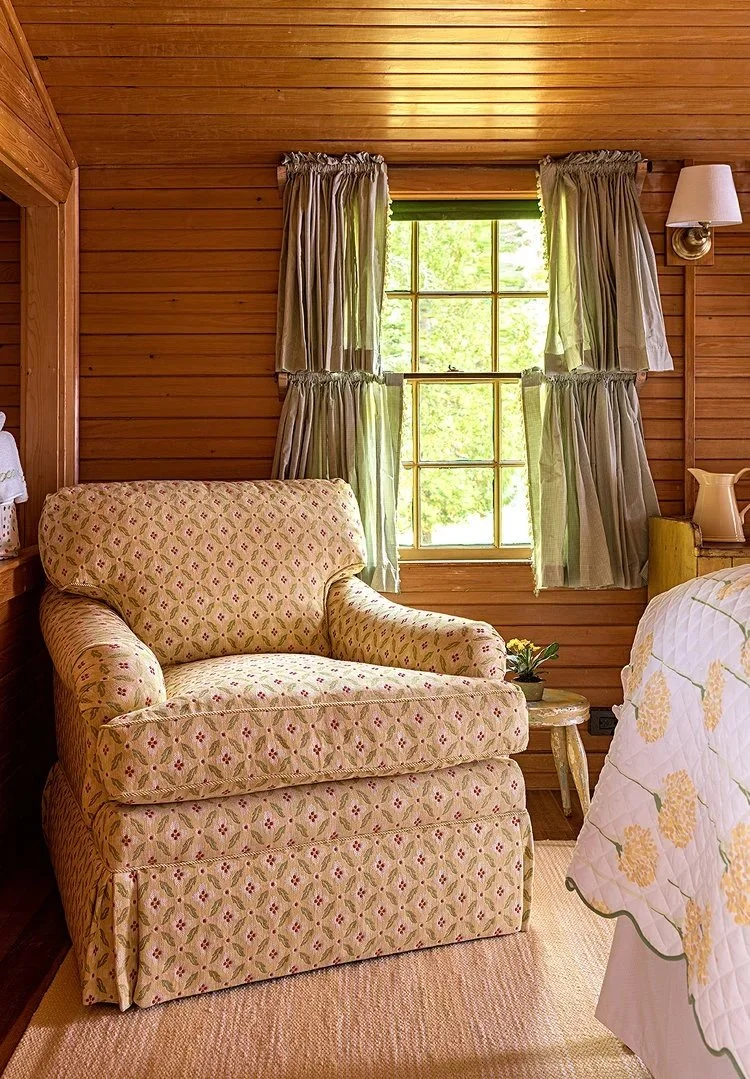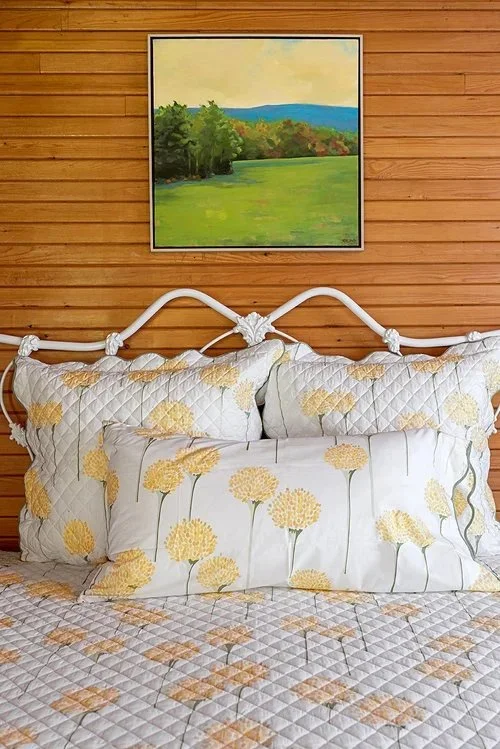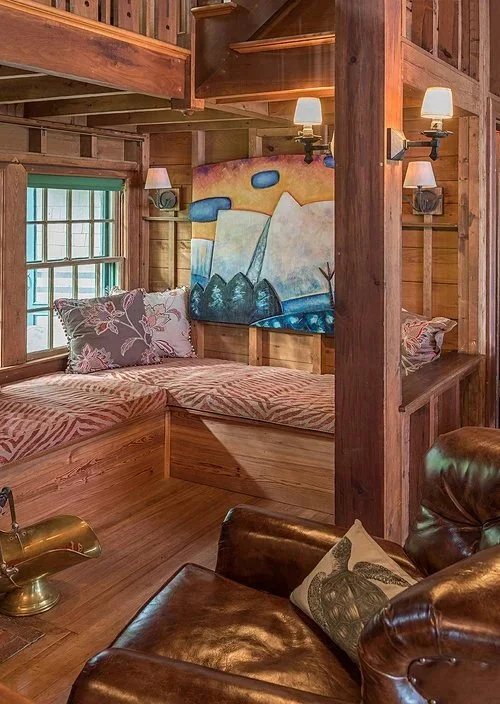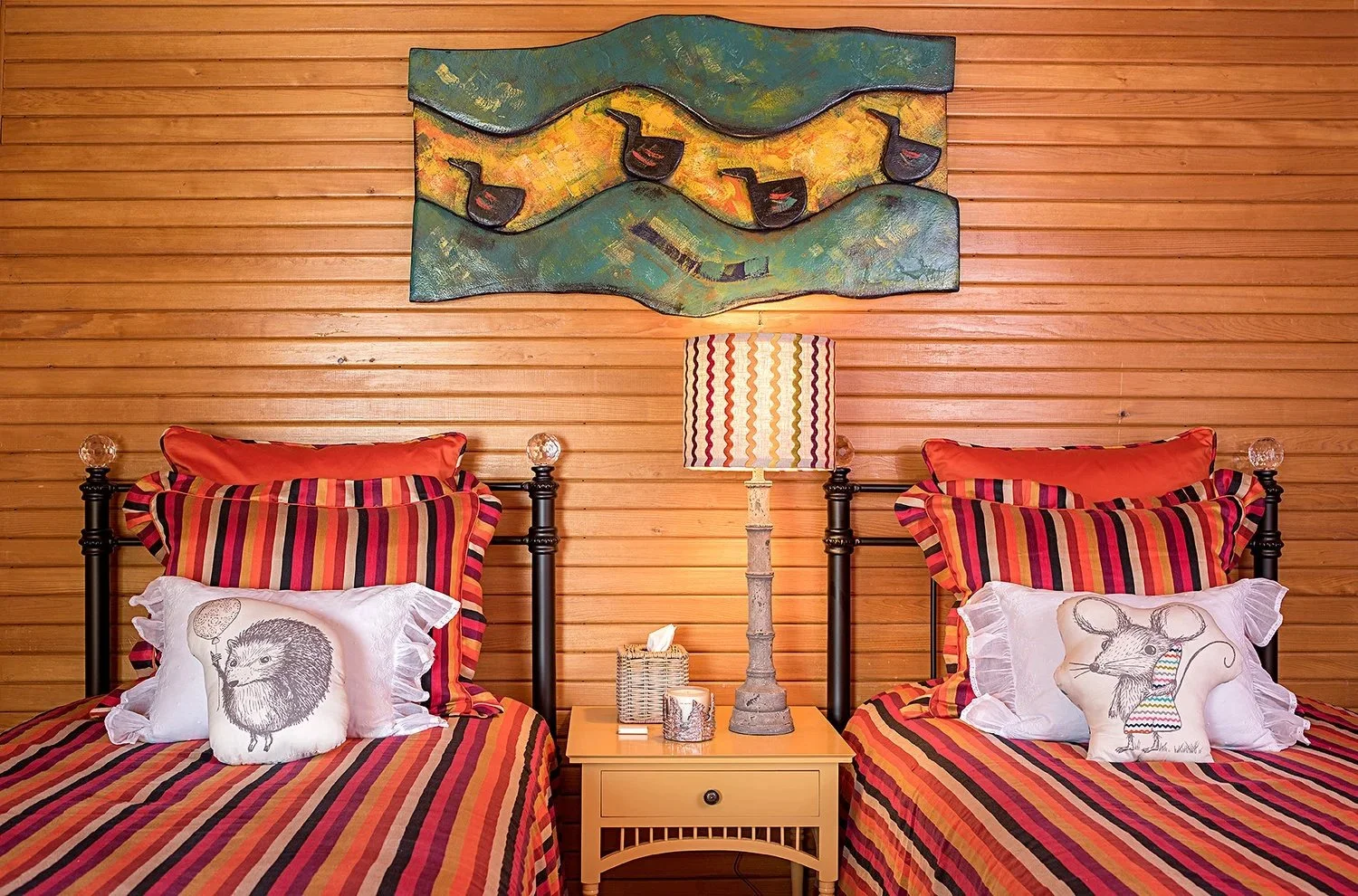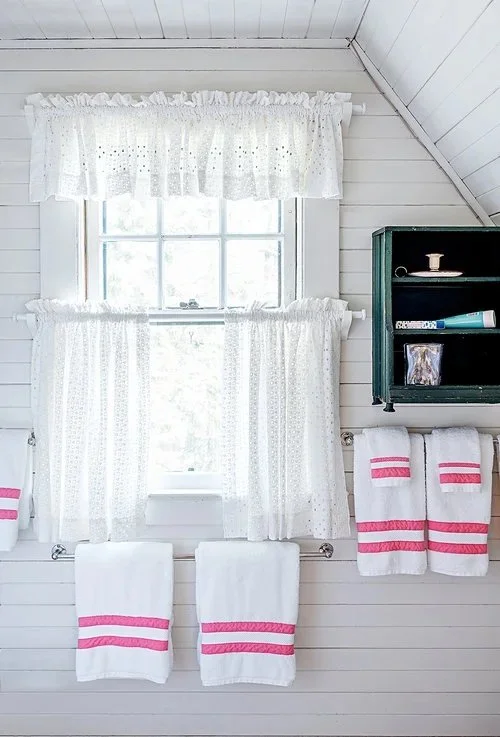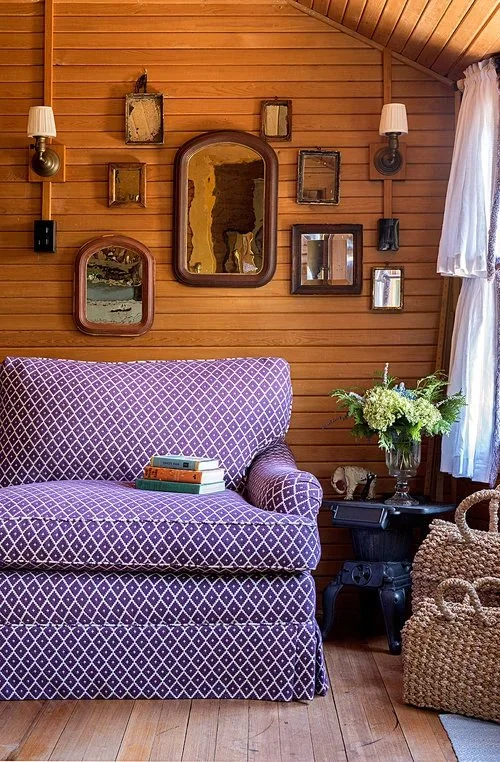Portfolio
Taking Up the Mantle
Northport, Maine
Set on a sprawling property in Northport, Maine, this project reimagines a beloved family home with warmth, artistry, and a deep respect for its history. Working closely with the homeowner, a creative collaborator with a vision, we infused the space with layers of texture and meaning, transforming cherished heirlooms into bespoke design moments. From a handcrafted light fixture made from her father’s vintage records to the use of Ralph Lauren furnishings and embroidered textiles, every element balances luxury and nostalgia. The result is a richly detailed interior that honors the home’s rustic charm while introducing refined elegance and an enduring sense of place.

